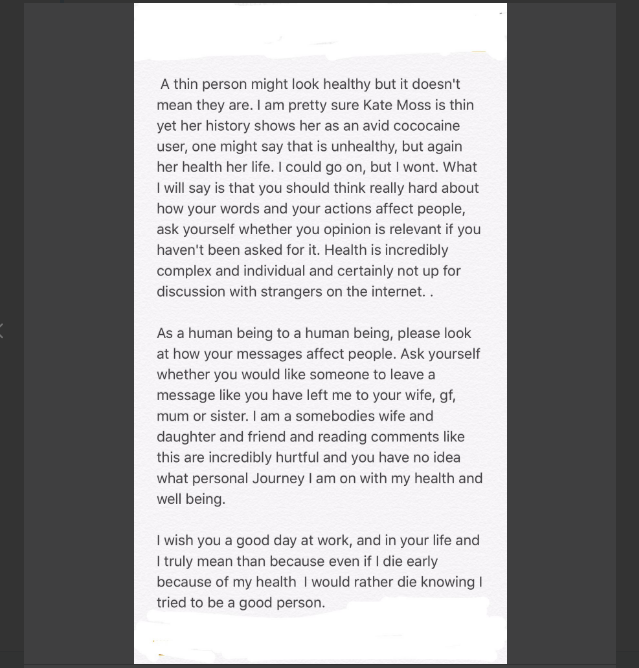Brave Blogger Calls Out Online Fat-Shaming As Another Form of Abuse
By:
On July 1, plus-size blogger Callie Thorpe reposted her feature in British Vogue for trending swimsuit wear to her more than 150,000 Twitter followers.
“To all the people who called me Fat, Ugly and treated me like trash because of my weight growing up....Catch me on Vogue with your WCW,” she tweeted.
The online response to follow from people was unexpected. Between both Instagram and Twitter, Thorpe claimed to have received hundreds of violent and abusive comments simply because of her size.
The negativity prompted her to post a Youtube video discussing how the fat-shaming she’s received is "not just trolling" but straight up "abuse of fat people" on the internet.
The blogger disabled the comments on her Youtube video only to receive harassing comments elsewhere. So she decided to respond.
 Twitter.com - twitter.com
Twitter.com - twitter.com
Despite the negativity, her peers and fans, alike, applauded her openness, with many agreeing this type of abuse should be stopped.
For decades, society has had an obsession with being thin and has almost always disregarded curvy women.
Harriett Brown, author of "Body of Truth: How Science, History, and Culture Drive our Obsession with Weight and What We Can Do About It," has spent years researching why the U.S. is obsessed with body size and weight. She told blogsite Next Avenue:
“I would like to change the conversation in this country about weight. All our lives, the pressure to be thin comes from so many directions. We are exposed to advertisements, the media is saturated with the message and it comes from the medical establishment, too.”
In 2016, the average size of the American woman was determined to be a size 16. With this information, fashion brands still do not adhere to the masses and maintain a range of size 0 to size 12 in their collections.
Merriam Webster carries several definitions for the word healthy, mainly outlining the word to mean "free from disease or pain."
Brown continued telling Next Avenue, “We can’t get away from it. Part of what reinforces cultural ideals about weight – in addition to ads and medical professionals – is the conversations we have with ourselves and with each other.”
As for Callie, she wants to make the people who talk negatively online about others to be held more accountable.
"I just want to say, please use your voice. Please use your report button," she said in the video. "Please email people in charge and tell them that it's not acceptable to leave comments in a section like that. If you feel brave enough, please challenge people. I don't expect everyone to be able to do it, even me."
